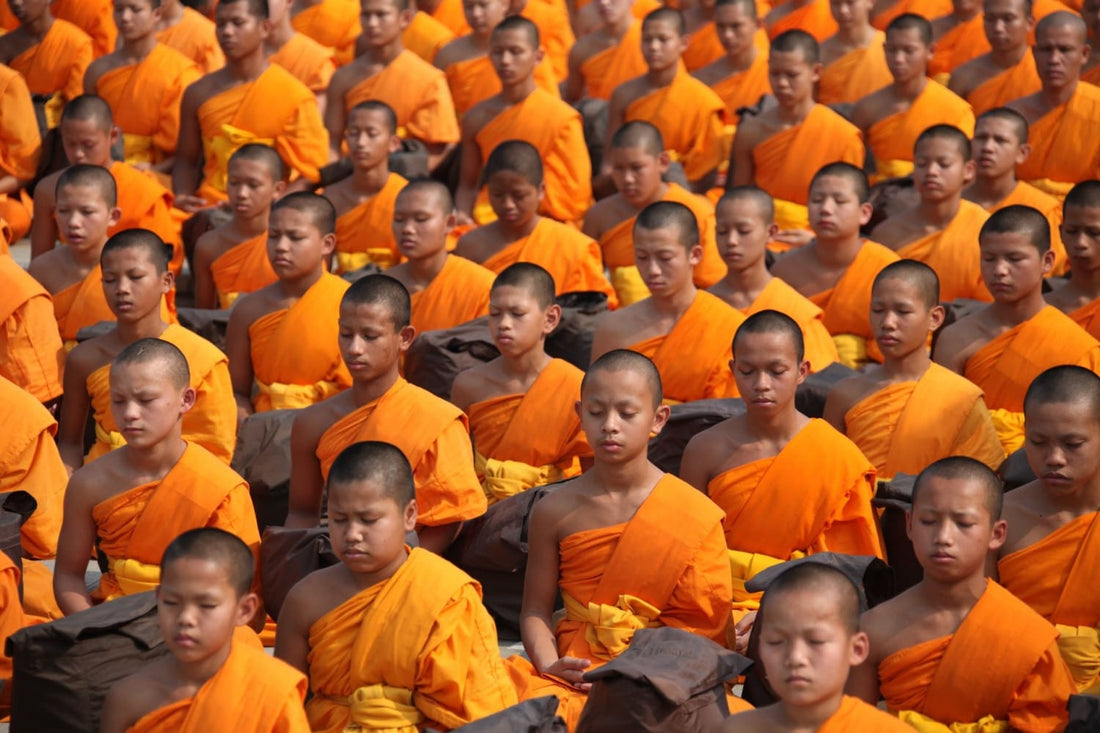Guest Post: 5 Mindfulness Tips to Promote Mind-Body Synergy in Martial Arts
There’s a fine line between the act of responding and reacting. And in the world of martial arts, knowing that is very important. Contrary to popular belief, martial arts isn’t about fighting as a reaction to an opponent’s attack. It’s about responding – acting with full awareness of your mind and body.
Mind-Body Connection
Training the body – muscles, agility, speed, and strength are crucial in mastering martial arts. But training the mind is equally important too. Regardless of the form of discipline – whether it’s Brazilian Jiu-Jitsu, Kung Fu, or Karate, training the mind goes a long way in mastering martial arts. Think about the martial art movies you’ve watched, like the Ip Man, Enter the Dragon, and Once Upon a Time in China. While of course, some scenes depict exaggeration, they all point to a universal fact: the human brain is a powerful thing. And by harnessing your mental prowess through mindfulness, you can master anything, from a simple craft like sewing to one as complex as martial arts.
Incorporating mindfulness in your martial arts practice
Whether you are a beginner or a professional martial artist, there are some ways to incorporate mindfulness in your discipline. They include the following:
Breathing Techniques
The greatest martial artists in the world share the same expertise on conditioning. But there’s another important aspect that is often overlooked: breathing technique. And if you think that only meditative forms of martial arts like tai chi for seniors require breathing techniques, think again. Proper breathing brings you mental calmness which sets you in the right pace and allows you to move more freely and correctly during training. Advanced martial artists incorporate abdominal breathing in their practice, wherein exhalation is longer than inhalation. Breathing allows the natural life force energy to flow throughout the body as the practitioner make concentrated movements.
Visualization
In many forms of martial art, most of the training time is spent on intense body movements, such as in drills and sparring. But the mind needs moments of silence too – time for calmness and relaxation. As it takes place, the mind gets into the realm of endless possibilities. During training sessions, take the time to just sit, be still, and allow your mind to wander. Visualize the moves or drills you want to improve on. What the mind can conceive, it will achieve – so the saying goes.
Slow, Progressive Movements
Martial art is not always about being fast or moving fast. It’s not just about being strong and having to be strong. Practicing slow, progressive movements requires a great amount of focus and attention. Think about the moving poses in this discipline and how much balance is needed to perform them. It’s hard to stay present in the moment during intense movements. By incorporating slow, progressive exercises into your routine, you can get into a mindful state more easily.
Time Off
Some martial artists boast about training several hours in a day, and 7 days a week. While more training hours mean more skills learned and strength gained, the brain, just like any other part of the body, needs downtime too. Just as you allow your muscles to recuperate, you also give time for your mind to experience serenity. Mental-physical balance is crucial in martial arts. Nourishing the mind-body connection helps martial artists perform better and deal with stress effectively. As an art where the mind, body, and soul unite, getting time off from training and incorporating mental-spiritual exercises such as meditation, is really helpful.
Emotional Regulation
Any martial artist will not perform well when his mind is full of unwanted thoughts. The ability to control one’s emotion is recognized as the highest level of self-control that advanced martial artists exhibit. Mindfulness is associated with acceptance. The ability to allow emotions – good or bad – and let them go affects a person’s response to any situation. If the mind is too active (such as when it is absorbed by raging thoughts), the body gets tense and the ability to react with swiftness and accuracy is compromised. Studies show that negative emotions are normal. It’s how we react to these emotions that matter the most. Practicing emotional regulation takes time, but the reward is tremendous.
Incorporating mindfulness in your discipline may take time and practice. But the suggestions given above – proper breathing, visualization, slow and progressive movements, time off, and emotional regulation can greatly help you. Regardless of the form of martial arts you’re into, engaging in the state of mindfulness allows you to unleash your potential and be the master of your discipline.
-------
This post was contributed by Jessica Hegg, the content manager at ViveHealth.com. An avid gym-rat and nutrition enthusiast, she’s interested in all things related to staying active and living a healthy lifestyle.

